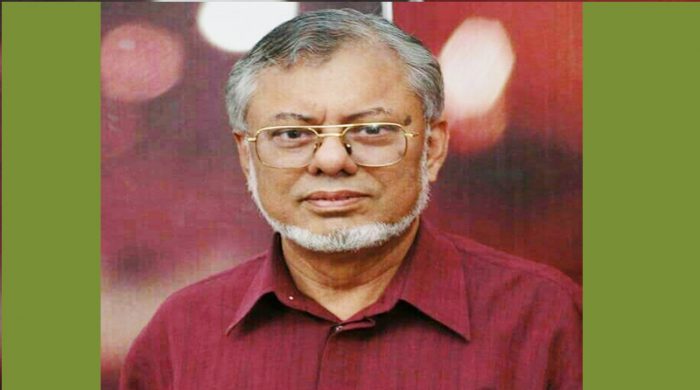
Dr. Amanur Aman, Editor & Publisher, The Kushtia Times/
The death or birth anniversary of Kamrul Islam Siddique, an internationally renowned mass people oriented engineer and freedom fighter termed as the architect of rural infrastructure development in Bangladesh, are passing away without anyone’s heeding.
Siddique He died on September 1, 2008 in the United States.
One of the Kushtia’s proud son Kamrul Islam thoroughly made a change the definition of the local government engineering term to one of the most meaningful works on his long list of achievements, which struck a chord not only in Bangladesh but all over the world, especially the idea of a local government engineering model in rural development. Many countries around the world still follow Kamrul Islam Siddique’s model in creating local government engineering. He was the founder and chief engineer of the Local Government Engineering Department (LGED) in Bangladesh.
Kamrul Islam was a very simple man in simplicity. Possessing his own qualifications, skills and infinite intelligence, this man strengthened his position in Bangladesh and in the world court by his deeds and became extraordinary for a while.
He is specially referred to as the architect of rural infrastructure in Bangladesh.
This famous engineer was born in 1945 in Kushtia. It was in this city that he spent the first chapter of his childhood, adolescence and education.
He had his degree in civil engineering from BUET in 1966. He started his career in 1967 as an assistant engineer of Kushtia district council. He left his job on April 30, 1971 and joined the great war of liberation. Later, he took shelter in the ‘Betai’ youth camp in India.
As one of the allied fighters of the Zonal Council comprising the greater Kushtia and Pabna regions, he organized the freedom-loving youth and provided them with primary training. As a ‘Zonal Engineer’, he actively collaborated in the operation by designing roads, bridges and culverts.
He moved to the United Kingdom in 1977, where he earned a master’s degree in urban and regional planning from the University of Sheffield. Returning from abroad, he joined the Bangladesh Rural Programme as Deputy Chief Engineer. From 1977 to 1985, he was the supervising engineer of the Rural Programme and later the Urban Construction Programme under the Ministry of Local Government, Rural Development and Cooperatives.
Until 1992, he worked as an Engineering Adviser in the Bureau of Local Government Engineers. This is where an engineering thinker was born. He plans to radically change the Institution. He devised a grand plan to transform the traditional systematic bureau-infrastructure concept into a people-friendly organization. At first, the then government disagreed on the issue considering a lot of money, but later Kamrul Islam himself took the initiative to bring up the issue of getting foreign donations in this sector. Later the government agreed. He carried out structural reforms of the organization and established the Department of Local Government Engineers and was appointed as its Chief Engineer.
He worked tirelessly for the development of rural infrastructure as the Chief Engineer and took local government engineering to the world stage as a model for the development of rural infrastructure. He worked in this sector for 33 long years. His plan shows a glimpse of paved roads up to the rural level of Bangladesh today.
He revolutionized the use of information by introducing Geographic Information System (GIS) to prepare original maps of district-upazila-unions. He took timely steps to build rural roads, bridges, irrigation and drainage systems, primary schools, community development and co-operative training centers, as well as emergency multi-purpose cyclone shelters under the JICA-assisted Ideal Rural Development Project (MRDP).
Apart from these, Siddique has a more colourful career. He joined as PDB chairman in May 1999. In 2000, he was the Secretary to the Jamuna Bridge Division and Communications, Secretary of the Ministry of Housing and Public Works from 2000 to 2001, Chairman to the Privatization Commission under the Prime Minister’s Office in 2001 and Executive Director to the Dhaka Transport Coordination Authority from 2002 to 2004.
He was the Chairperson of the Global Water Partnership-South Asia Region from 2003 to 2004.
He was the President of Bangladesh Renewable Energy Society, President of Bangladesh Forum for Urban Development, Convener of Government Board of Engineering Staff College Bangladesh, President of Ahsania Mission Cancer Hospital Construction Committee, President of Siddique Foundation, Kushtia, founder of Begum Hamida Siddique, President of Kushtia District Association, Dhaka, Vice-President of Gulshan Society, Vice-President of Eye Care Society, Advisor of Kazi Abu Mokarram Fazlul Bari Islamic Foundation Center and Institution of Engineers of Bangladesh in 2002-03 ( IEB) He served as elected president.
He retired in 2005 after nearly four decades of career.
Although not enough, this man has been honored in many ways. Notable among those are Bhasani Gold Medal (1995), Poet Jasim Uddin Gold Medal (1995), IEB Gold Medal (1998), CR Das Gold Medal (1999), Abbas Uddin Gold Medal (1999), Sher-e-Bangla Gold Medal (2000), Bangabandhu Engineer (2000) , JICA Merit Award (2000), US Institute of Civil Engineers Fellowship, Bangla Academy Fellow (2007) etc.
Kamrul Islam Siddique was the forerunner of the milestone that Bangladesh has set in the history of rural infrastructure development in South Asia. All the work statistics show that the establishment of the Local Government Engineering Department (LGED) was his greatest carrier achievement. Based on the seeds he sowed in LGED, the trend of developing rural infrastructure continues in the country today.